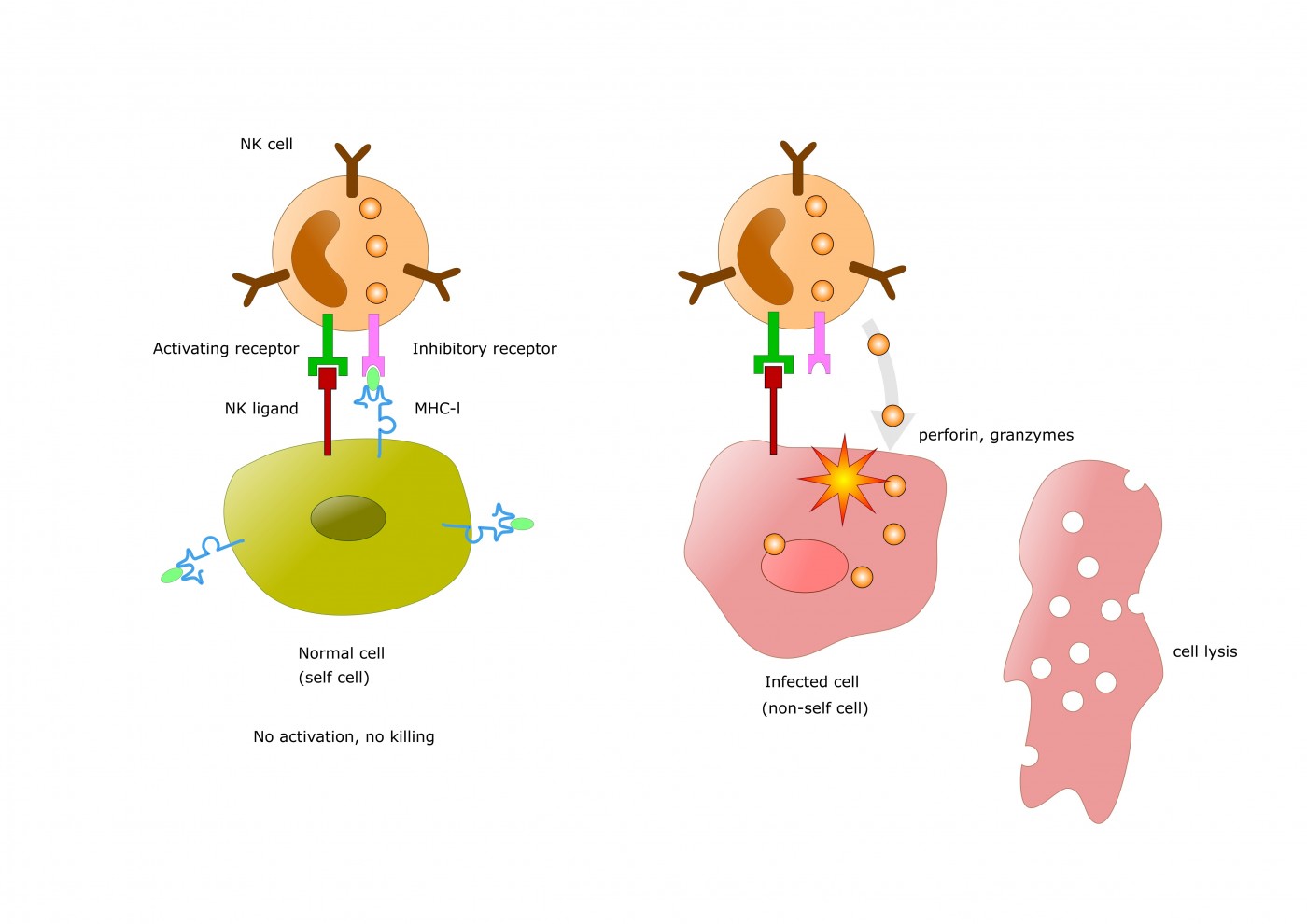In a new study entitled “Transcription Factor Foxo1 Is a Negative Regulator of Natural Killer Cell Maturation and Function,” researchers at The Ohio State University Comprehensive Cancer Center identified Foxo1 as a negative regulator of natural killer cells’ maturation and function. Since natural killer cells are key players of the body’s immune response against cancer cells, the newly identified mechanism may be a potential strategy to prevent anti-cancer immune responses and thus may be targeted in the future by new therapeutics. The study was published in the journal Immunity.
Natural killer cells are type of cytotoxic lymphocyte, key immune players, and are one of the most important first responders against viral-infected and cancer cells. With clear functions in the innate immune system, however, which factors behave as negative regulators of natural killer cells development and functions remains largely unknown.
Now, a research team at The Ohio State University Comprehensive Cancer Center – Arthur G. James Cancer Hospital and Richard J. Solove Research Institute (OSUCCC – James) discovered that a protein – Foxo1 – inhibits natural killer cells’ development and function, by using a mouse model where natural killer cells were deleted. Specifically, the authors found that Foxo1 promoted the return of natural killer cells back to the lymph nodes and inhibited their later stages towards maturation and function by downregulating Tbx21 expression (a positive regulator of NK-cell development and function), notably natural killer cells anti-tumor activity. Accordingly, loss of Foxo1 was sufficient to promote the late-stage natural killer cells maturation in mice with some deficiency in expressing Tbx21, known as heterozygous Tbx21+/− mice.
Most importantly, the team highlights that their findings, both with a mouse model and human natural killer cells, show two regulators – Foxo1 and Tbx21 – play opposite roles in controlling natural killer cells development and functions and potentially may be part of a mechanism for cancer cells to prevent anti-tumor immune responses.
Principal investigator Jianhua Yu, PhD, assistant professor of medicine and a member of the OSUCCC – James Leukemia Research Program noted, “We discovered a pathway that cancer cells may use to block NK-cell function and evade immune responses. The findings may provide us an opportunity to enhance NK-cell antitumor activity.”


